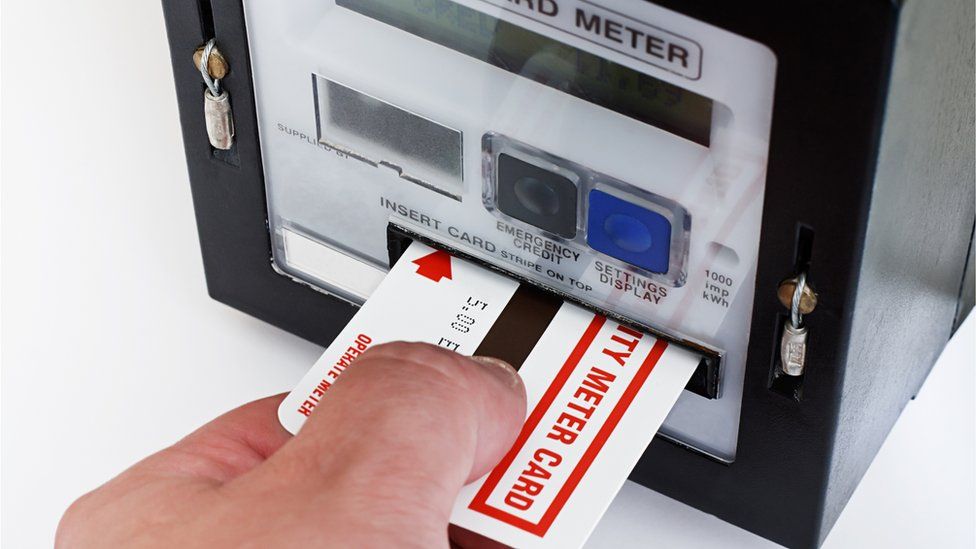ARTICLE AD BOX
 Image source, Getty Images
Image source, Getty Images
By Daniel Thomas
Business reporter, BBC News
The energy crisis is pushing more households onto prepayment gas and electricity meters, research suggests.
Comparison website Uswitch said 60,000 new meters were installed in Britain in the six months to March, after over two years in which the number fell.
It says prepayment customers are more likely to be vulnerable and at risk of being, in effect, disconnected when they cannot afford to top up.
Ministers promised to focus energy support on the most vulnerable in 2023.
Most UK households pay their gas and electricity bills by direct debit, typically receiving quarterly bills.
But using data from energy regulator Ofgem, Uswitch found that almost 7.4 million people in Britain were using prepayment meters in March - up from over 7.3 million in October last year.
Uswitch said suppliers may put customers on prepayment meters if they struggle to keep up with bills, because it helps them control how much and how often they pay for energy.
But it also said prepayment customers could choose to "self-disconnect" when costs got too high and faced higher standing charges for electricity. They are also unable to smooth bill rises over the year.
Based on current trends, Uswitch says around 10,000 prepayment meters will be installed a month this winter, leaving thousands more households at risk.
Richard Neudegg, director of regulation at the site, called the trend "worrying".
"With energy prices set to rise again in April, this is a warning of things to come and we will most likely see more and more households moved to prepayment meters in the coming months and years," he said.
"Families and individuals on prepayment meters will be plunged into darkness as they self-disconnect when they can't afford to top up."
Image source, Getty Images
Gas and electricity prices have soared this year, largely as a result of the war in Ukraine.
The government has limited energy bills and prepayment meter costs until next April, meaning the typical household is paying about £2,500 a year.
Without that intervention, that annual bill would have been £3,549 a year. Last winter it was £1,277 a year.
New Chancellor Jeremy Hunt has said the government will scale back its support after April 2023 while protecting the most vulnerable. But it is unclear what help will be available, raising concerns that more people could face hardship with bills forecast to rise above £4,000.
Uswitch is urging the government to prioritise those on pre-payment meters next year.
The Department for Business said the government's Energy Price Guarantee would reduce bills this winter by "roughly a third" of what they otherwise would have been. It added that the most vulnerable households were receiving £1,200 in additional direct payments.
A spokeswoman said the Treasury's review of energy support from next April would focus help on "those in need" while reducing costs for the taxpayer.
Have you had a pre-payment energy meter installed? Please share your experiences with us by emailing haveyoursay@bbc.co.uk.
Please include a contact number if you are willing to speak to a BBC journalist. You can also get in touch in the following ways:
If you are reading this page and can't see the form you will need to visit the mobile version of the BBC website to submit your question or comment or you can email us at HaveYourSay@bbc.co.uk. Please include your name, age and location with any submission.

 2 years ago
46
2 years ago
46








 English (US) ·
English (US) ·